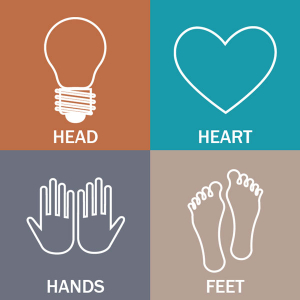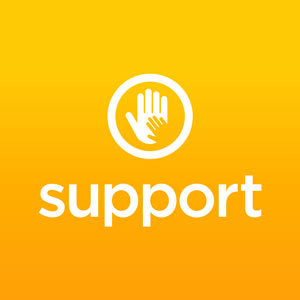How to Read the Bible
Does the Bible confuse or intimidate you? Have you ever tried to start at the beginning and got stuck on hard-to-pronounce names and long lists of laws? We have a few quick tips for you in the video below, as well as some additional help further down the page for reading this beautiful, challenging book about God!
7 Tips for Making the Bible Part of Your Life
Don't start at the beginning.
As the video above suggests, you shouldn’t start on page one of the Bible, but much farther in. The Gospels (Matthew, Mark, Luke, and John) should be the first place you turn to start reading the Bible. After that, you might want to try a Bible reading plan such as this one.
Find a Bible translation that clicks with you.
A simple way to do this is to go to biblegateway.com and read a passage (Eg. Psalm 23) in different translations to see which one reads most easily to you. We use NLT often at church, and also recommend the NIV and Message translations!
If you already own a Bible but find it hard to read, invest in a new one! If you don’t have the funds right now, we have a free Bible you could pick up at the church! Just email Mandy Fowler at mandyf@cornerstonemi.org.
Pray.
Pray before you read and after you read. Ask God to speak in and through what you read. Pray for a mind cleared of distractions and an open heart to receive what’s in the passage.
Engage.
Don’t just read the words in the Bible – interact with them! Here are some questions that will help you engage with any passage of Scripture.
- What attributes of God show up in this passage?
- What bothers me in this passage, or what do I have trouble with?
- If I’ve read this passage before, what seemed new this time?
- Is this prescriptive (something that should happen) or descriptive (describing what happened)?
- What (if anything) is going on in the background?
- What can I obey? Or, how will reading this form or transform me?
- What verse or verses will I make time to meditate on this week?
Get help.
There are fantastic overview videos for every book of the Bible available on bibleproject.com. These explain what was going on in the culture at the time each book was written and explore the rich meanings of the original Hebrew or Greek words, the original languages the Bible was written in! If you have further questions, you can always ask a pastor or staff person as well.
Make it a practice.
While we never want to get to a place where reading the Bible becomes a mechanical habit every day (like taking a vitamin!), it is something we want to form into a regular practice. There will be days, weeks, or even months where we don’t feel like reading Scripture. But not reading it can easily become a habit too. Will we form a practice of reading, or not reading?
Get in a group.
Reading Scripture with other people is an important part of a journey with Jesus. Whether it’s in a class, Bible study, or a life group, you will gain a lot more than you would just on your own. Before the printing press was invented, it was the only way that Christians read the Bible – together! Hearing people share from their perspective helps us see Scripture with new eyes.
Bible Reading Plan
If you're interested in reading more Bible passages that specifically relate to the weekend message, this is for you. This six-day, weekly plan can be used as a devotional, or as a supplement to the current series.








